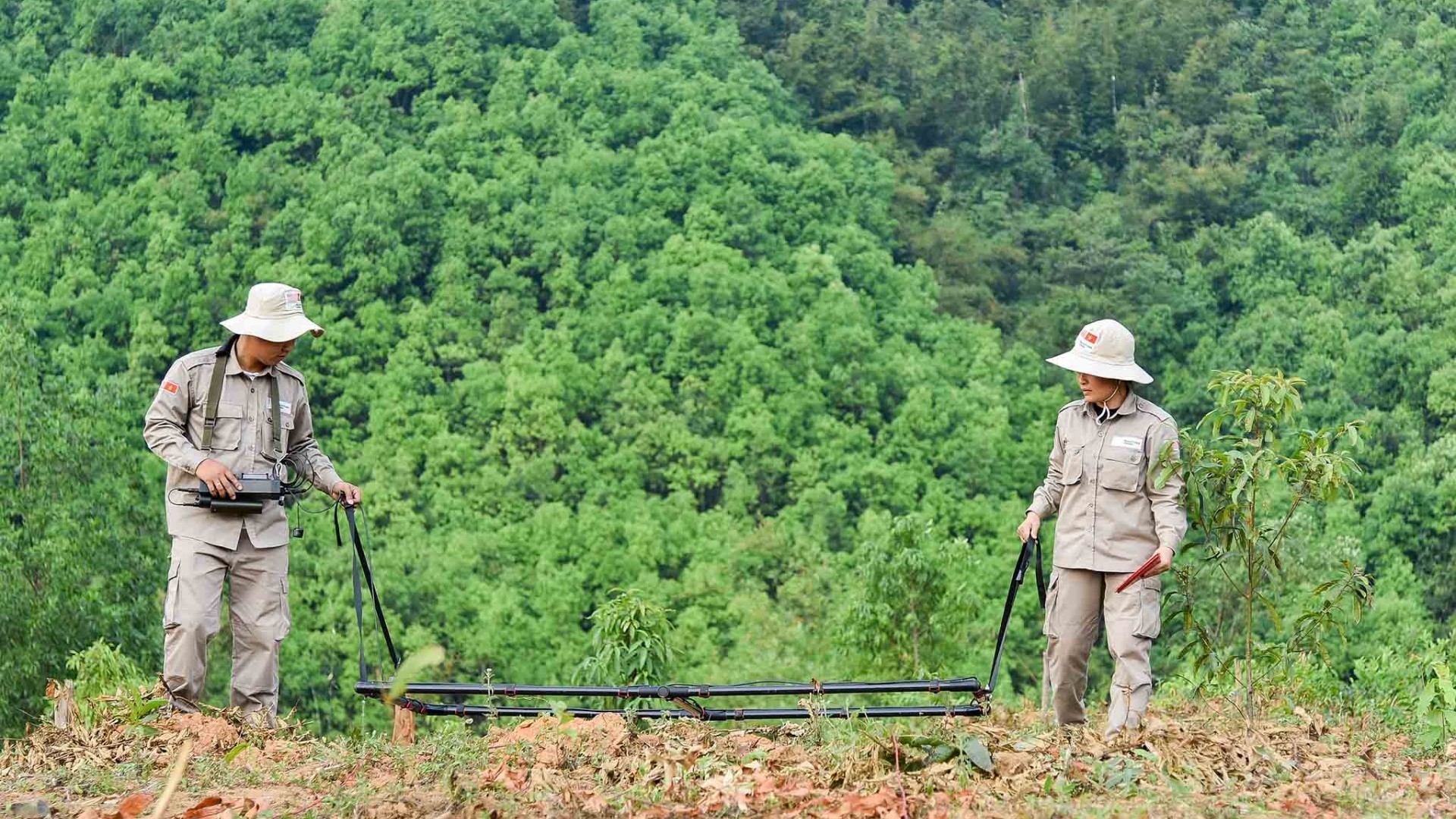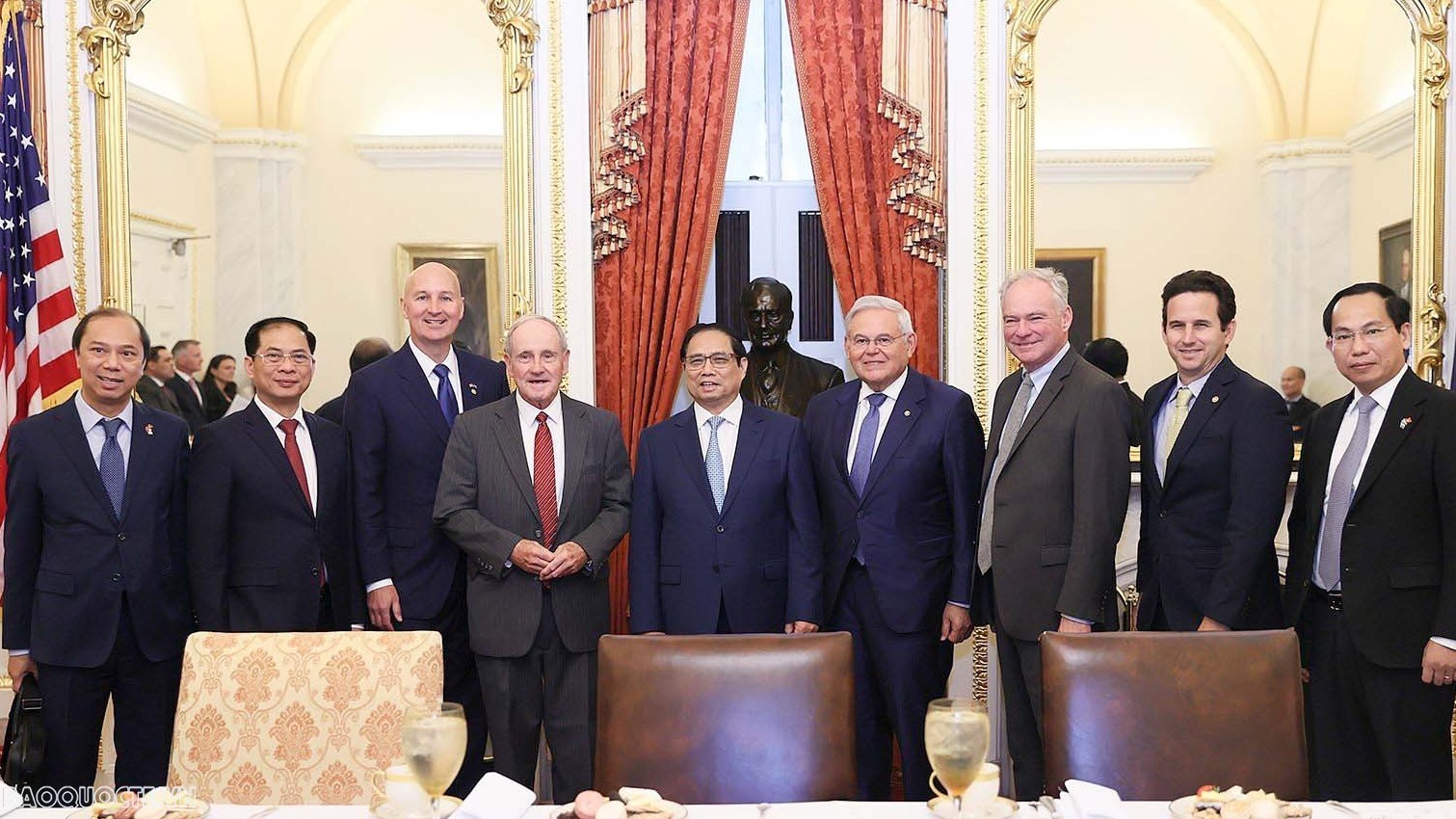
Senior aid to US Senator Patrick Leahy: Three decades of healing wounds of war
Latest
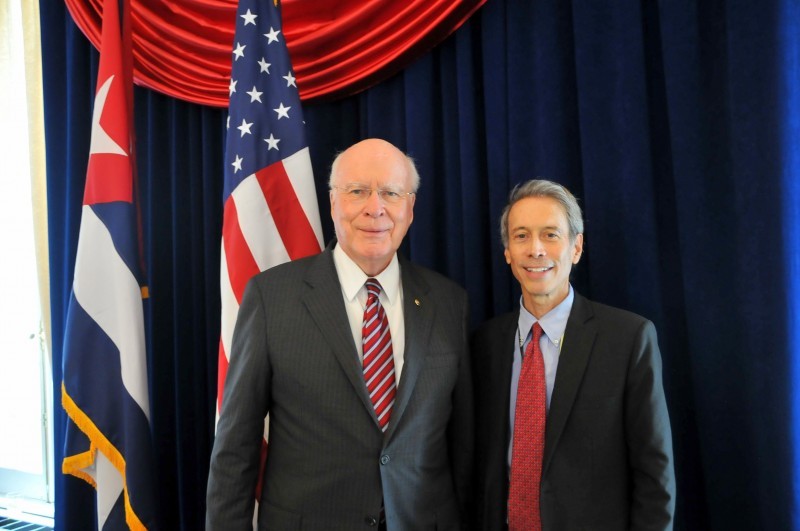 |
| Mr. Tim Rieser (right) and US Senator Patrick Leahy. |
A bridge between two generations
First and foremost, we are delighted to warmly welcome you to Vietnam. What brings you back to the country?
I worked with Senator Patrick Leahy for many years and he retired in January. We have been thinking about who would, from the Congress, carry on, from his time here, working to support reconciliation with Vietnam, particularly focus on the war legacy. For me, I want to help the next generation of members of Congress, come here and understand why we spend so much effort to overcome the legacy of the war and to build the new relationship and to continue that work.
In fact, I recognized that there needed to be someone who could bridge those two realities: The past with Senator Patrick Leahy, myself and the future with new people. I was the only person who could do that. That was why I decided to come.
An opportunity and a journey
You said that you have worked a lot with Senator Leahy. You also witnessed and participated in promoting the US-Vietnam relations, specifically the US efforts in addressing war legacies in Vietnam. Could you share your impressions in that area?
I think they are very much related. I am old enough to remember the war. I was not in the military but I could have been drafted. I was old enough. In the 1970, I was 18 years old. It made a big impression on me, which I have never forgot.
From that experience, I always felt that it was a monumental mistake. That was really a catastrophe for both countries. For those of us who lived through that time, it affected us in a way that has lasted our whole life. Even though we were, in my case, not here, but it was a very divisive period in our history. I never imagined I would have the opportunity to do something about it, but I knew that many of the things that have happened here, continue to be problems for people in Vietnam and for the relationship between two countries.
Therefore, when I found myself working in the Congress and in a position to be able to do something, that was really an opportunity I never imagined that I would have. Since then, I have worked with Senator Leahy over 30 years to address the legacies of the war. It was not just about helping people who were affected by bombs, landmines, exposed to Agent Orange, dioxins, but also opening the door to cooperation on other areas, creating a new relationship between Vietnam-US.
You know, there were others who were important in laying groundwork for that to occur such as Senator John McCain, John Kerry and other veterans of the war, some of whom were the first to come back here and to support reconciliation. However, Senator Leahy, who also lived through that time, share the desire to do something about the hardship that the war had caused for millions in Vietnam.
Ever since then, over the last 30 years, we have been working to support reconciliation and address the legacy of the war in a way that has opened the door for cooperation in many other areas. While Senator McCain, Senator Kerry and President Clinton were really instrumental in establishing diplomatic relations after the war, Senator Leahy focused on turning that into a new relationship.
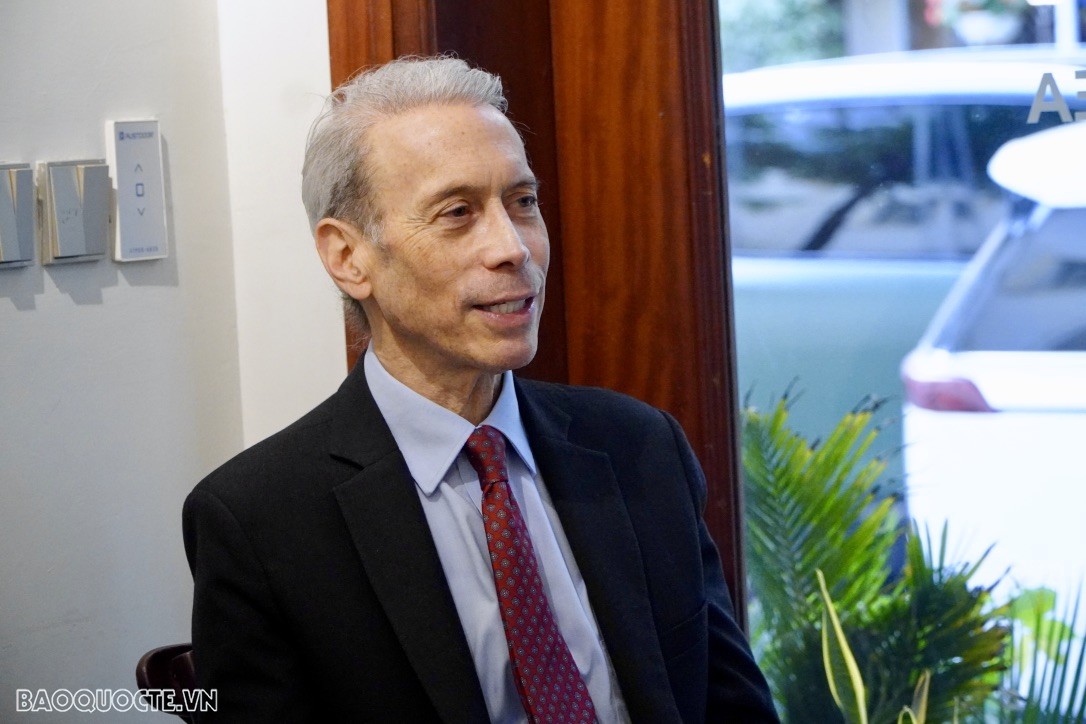 |
| Mr. Tim Rieser during his interview with The World & Vietnam Report. (Photo: Viet Nguyen) |
Transformative progress
Could you share some key achievements in cooperation regarding addressing war legacies, for example, the decontamination of Bien Hoa Airport?
I think there are quite a few examples. First of all, just look at the way the two countries are engaging with each other today, it is transformative. When I first became involved, there were a lot of resentments and angers about things that had happened and the continuing problem that resulted for people in Vietnam. Today, we are working together in many areas. Really, we have transformed the relationship into a partnership which is addressing many areas of mutual interests.
I think the Bien Hoa remediation project to deal with the dioxins contamination there is a good example. Cleaning up Da Nang Airport and dealing with dioxins contamination there, obviously was a real success. We are hoping that the Bien Hoa project will similarly transform what is a dangerous, toxic area into one where the airbase can be rebuilt.
We have also established programs in 8 provinces to help address the need of people with disabilities resulting from either accident involving unexploded bombs or exposure to Agent Orange. We are beginning a new project to help Vietnam locate and identify remains of people missing from the war, just the way Vietnam, for years, has helped our country locate remains of Americans who were killed here.
I think there are many examples of ways in which the work that we have carried out together. They have not only succeeded in addressing those specific problems, but have also contributed to the relationship and transformed it into a partnership that I think many of us could never imagine.
| "When I first became involved, there were a lot of resentments and angers about things that had happened and the continuing problem that resulted for people in Vietnam. Today, we are working together in many areas. Really, we have transformed the relationship into a partnership which is addressing many areas of mutual interests." - Mr. Tim Rieser. |
Could you provide some insights on future projects in addressing war legacies in Vietnam?
We are just starting a new project to help Vietnam identify the remains of those who are missing from the war. That involves two components: one is the support by the US Department of Defenses to provide archival information and artifacts that were collected by American soldiers who were here and returning to families of those who were killed; other information, documents about the battle that occurred to help locate the remains of Vietnamese, whether those who fought or civilians who were killed.
The other piece of it is supports by the US Agency for International Development. It is going to significantly improve the capability of Vietnam to conduct DNA analysis. Therefore, remains can be identified and connected to families, which will involve creating a whole database of families here to make comparison. Recently, altogether with scientists from Vietnam and others government officials in the Netherlands, we met with scientists and talked about different options, with different types of DNA technologies that are currently available and how to determine which is the best to use in certain circumstances that exist here. Therefore, by combining the data that we have with the new, available technologies, we think can make a real difference for many families in Vietnam.
We are also investing in the War Remnants Museum in Ho Chi Minh City, which is one of the most popular tourist sites and which portrays many of the things that happened during the war. What it does not show is all the things that have happened since, in a way that we have been working together to address the harm caused by the war. We want it to show a positive message that reflects the collaboration by both countries in the last 20 years to overcome the war legacies.
I think there are some other ideas that we are discussing. Our goals have always been continued moving beyond the war and finding ways to support each other and cooperate in new areas such as combating climate change, promoting public health, preventing the next pandemic, supporting higher education, increasing trade and investment… For us, as well as Vietnam and the US, it is a progression.
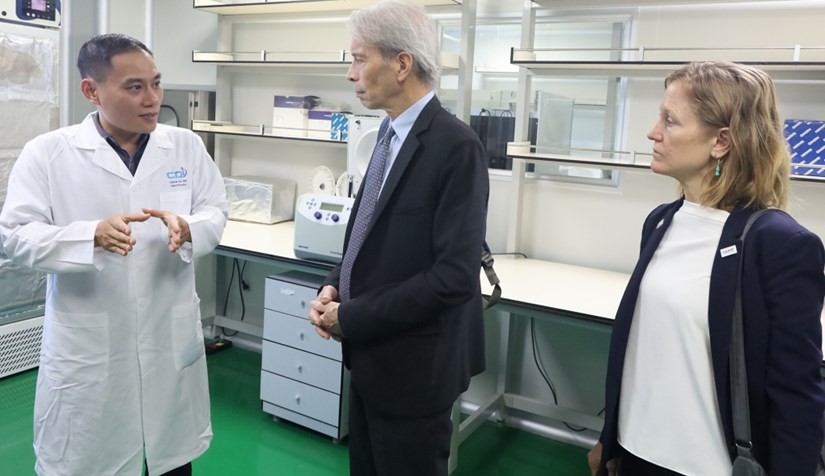 |
| Mr. Tim Rieser (center) and Mrs. Aler Grubbs, Director of US Agency for International Development in Vietnam, listened to a researcher in Vietnam Academy of Science and Technology's Center for DNA Identification. (Source: VAST) |
Addressing war legacies and reconciliation have paved the way for a better Vietnam-US relationship. This year will mark the 10th anniversary of US-Vietnam comprehensive partnership. What is your hope for the future of this bilateral relations?
I think the comprehensive partnership has really cemented the commitment of both countries to cooperate on a whole range of issues and to really treat each other as real partners in ways that are beneficial for both countries. We are now talking about elevating that partnership into a strategic partnership. It represents a long-term commitment that we have to build on the successes that we have had so far, to expand the existing cooperation. It is impossible to predict the future but I think what we have is the foundation for further deepening our relationship.
We have differences, there are issues that we disagree on, but it is by creating trust, confidence, treating each other with respect and building those ties at the most personal level, as well as the national and official level, that we can resolve problems and find solutions in areas that we have disagreement about. Therefore, I think that the future will be, as we have seen, part of that progression where the relationship is expanding, deepening that people of both countries are benefited.
| Mr. Tim Rieser (born 1952) is a Senior advisor of US Senate's Committee on the Budget, Senior foreign policy aid of former US Senate President Pro Tempore, Senator Patrick Leahy. Together with Senator Patrick Leahy, for the last 37 years, he has played an important role in promoting US efforts in addressing war legacies in Vietnam such as removing unexploded ordinance; decontamination of Da Nang and Bien Hoa Airports; supporting the need of people with disabilities, hardship resulting from the war; promoting the mobilization of US resources to help locate, identify remains of missing in actions American soldiers and Vietnamese after the war. |





